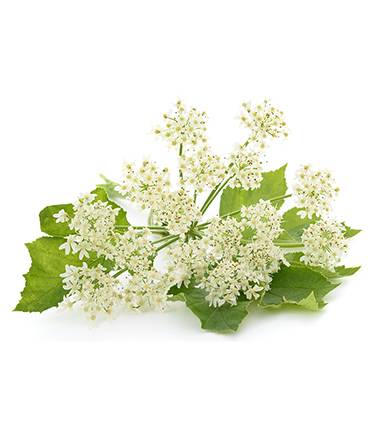Angelica

Latin name :
Angelica archangelica L.
Common Name :
Angelica officinalis, angel weed
Family :
Apiaceae
Origin :
Europe
Part of the plant used :
Underground part, seeds
Description
Also known as "angelica", angelica is a plant of the Apiaceae family that can grow up to 2.5 meters high.
Used in phytotherapy for its roots or its seeds, angelica contains flavonoids with an antioxidant role (archangelenone) as well as coumarins and furanocoumarins including imperatorine and umbelliferone, molecules that inhibit platelet aggregation.
Angelica has a beneficial effect on digestion by stimulating the appetite and gastric secretions. It also has antispasmodic properties and calms intestinal spasms and pain. In addition, this plant protects the liver and facilitates the evacuation of bile (cholagogue effect).
Angelica archangelica is antimicrobial, anti-inflammatory and helps regulate the menstrual cycle. The angelica herb is a blessing for those who consume it. Indeed, this plant promotes expectoration and urinary elimination. In addition, in vitro studies have shown that angelica fruit tincture (an alcohol-based pharmaceutical preparation) acts against the proliferation of cancerous cells thanks to the action of furanocoumarins.
The benefits
Angelica is traditionally used to aid digestion. It stimulates the appetite and contributes to the digestive comfort by participating in the physiological balance of the stomach PH.
Its action at the level of natural defences favours the physiological resistance of the organism in case of severe environmental conditions and also allows to calm the throat and the pharynx.
Scientific publications
Angelica is the subject of more than 2133 scientific publications.

























